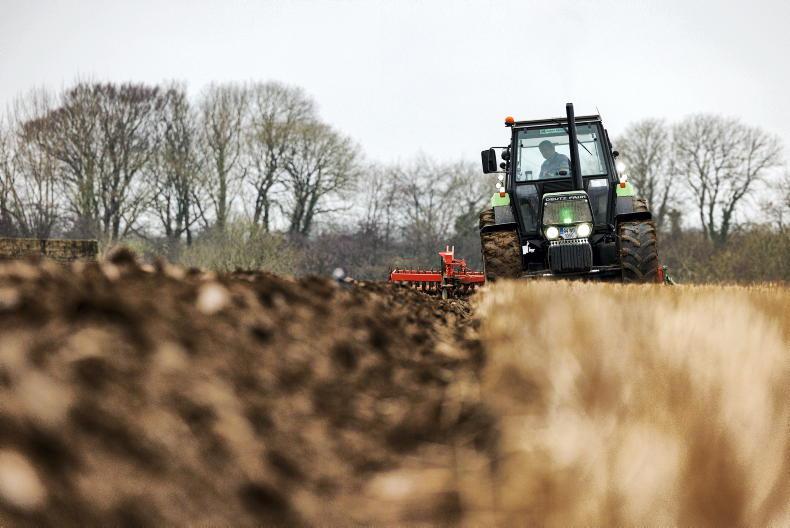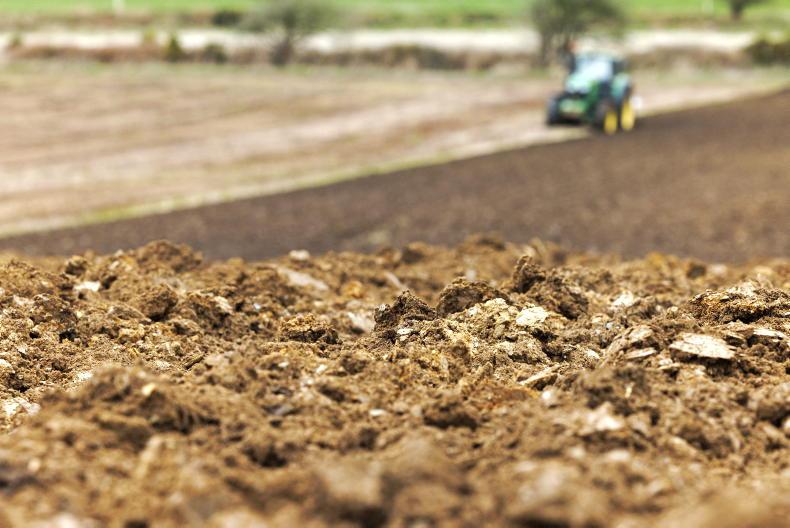The European Commission tabled a proposal for an EU-wide soil health law on Wednesday that will seek to open the door for farmers to voluntarily gain certification for farming healthy soils.
The proposal calls for EU countries to provide a monitoring framework for its farmers and landowners, but states that there should be no “direct obligations” for farmers under the law.
Significantly, the proposal does not look for legally-binding soil restoration targets to be placed on member states and it says that it was decided to not take such an approach “to limit the burden” being placed on landowners and farmers.
However, since the absence of national targets may risk the EU missing its overarching Green Deal goal of bringing all degraded soils to healthy status by 2050, the law states that the Commission will reassess its approach to targets six years after the new law enters force.

Ireland will have to set out a list of good and bad soil management practices and allow farmers to seek independent advice on applying them to their farms. / Donal O'Leary
The move could assist the development of carbon farming initiatives, as member states will be required to gather more soil health data and submit this to the EU under a common framework.
Good and bad practices
If passed, Ireland will have four years to define what it considers good soil management and poor management practices, with these lists to be used to inform the development of CAP schemes.
Examples suggested for defining an unhealthy soil include compaction, the loss of organic matter and excessive phosphates.
Maintaining soil cover, minimising disturbance, and matching stocking rates with soil type were among the best practices listed in the proposals.
Member states would also have to provide farmers with independent advice on managing their soils to comply with the law.
New income streams
Healthier soils with better data could give farmers “new income opportunities” by feeding into carbon farming systems, according to the proposal.
It also says that food produced off soils known to have a healthy status could reach premium prices in the marketplace.
Having certified healthy soils should also increase the value of land if it is to be rented, sold or used as collateral for borrowing, the Commission maintains.
The better data that will be made available on soils could help farmers cut fertiliser usage to reduce costs while improving sustainability.
The European Commission tabled a proposal for an EU-wide soil health law on Wednesday that will seek to open the door for farmers to voluntarily gain certification for farming healthy soils.
The proposal calls for EU countries to provide a monitoring framework for its farmers and landowners, but states that there should be no “direct obligations” for farmers under the law.
Significantly, the proposal does not look for legally-binding soil restoration targets to be placed on member states and it says that it was decided to not take such an approach “to limit the burden” being placed on landowners and farmers.
However, since the absence of national targets may risk the EU missing its overarching Green Deal goal of bringing all degraded soils to healthy status by 2050, the law states that the Commission will reassess its approach to targets six years after the new law enters force.

Ireland will have to set out a list of good and bad soil management practices and allow farmers to seek independent advice on applying them to their farms. / Donal O'Leary
The move could assist the development of carbon farming initiatives, as member states will be required to gather more soil health data and submit this to the EU under a common framework.
Good and bad practices
If passed, Ireland will have four years to define what it considers good soil management and poor management practices, with these lists to be used to inform the development of CAP schemes.
Examples suggested for defining an unhealthy soil include compaction, the loss of organic matter and excessive phosphates.
Maintaining soil cover, minimising disturbance, and matching stocking rates with soil type were among the best practices listed in the proposals.
Member states would also have to provide farmers with independent advice on managing their soils to comply with the law.
New income streams
Healthier soils with better data could give farmers “new income opportunities” by feeding into carbon farming systems, according to the proposal.
It also says that food produced off soils known to have a healthy status could reach premium prices in the marketplace.
Having certified healthy soils should also increase the value of land if it is to be rented, sold or used as collateral for borrowing, the Commission maintains.
The better data that will be made available on soils could help farmers cut fertiliser usage to reduce costs while improving sustainability.







 This is a subscriber-only article
This is a subscriber-only article











SHARING OPTIONS: